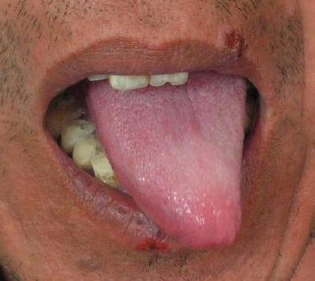The tongue, like the face, body type, fingerprint, eyes, or nose, can show the situation of the whole body. However, they show the different situations if they are observed more carefully. The shape, size, and softness of the tongue reflect the circulation status of matter and the energy condition of cells, while the width of the tongue reflects the straightness of the energy movement.
Large soft tongue
This indicates excessive water inside the cells.
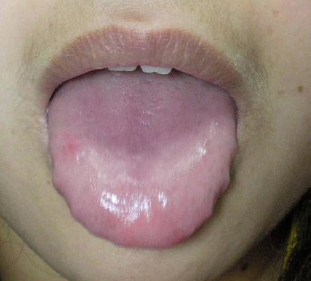
Large hard tongue
This indicates that there is too much matter stagnated inside the cells with a high density.
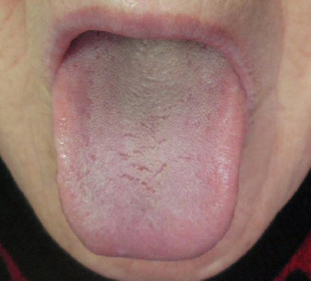
Small soft tongue
This indicates lack of matter inside the cells.
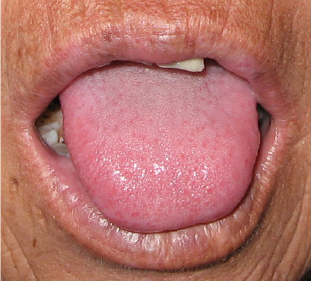
Small hard tongue
This indicates that there is insufficient matter inside the cells, stagnated without transformation.
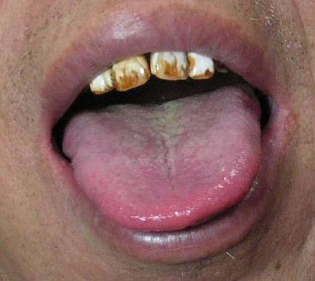
Peach-shaped tongue
The Upper Jiao part is narrower than the Middle and Lower Jiao parts. This indicates that there is limited space for energy flow and transformation. Very likely, blood stagnation or obstruction occurs in the Upper Jiao.
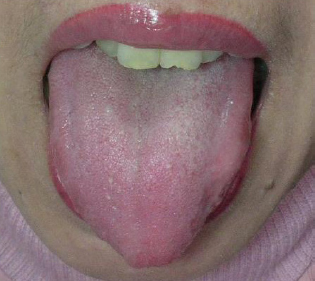
Closed-bag-shaped tongue
The root of the tongue is narrower than the tip. This indicates that the Lower Jiao area lacks driving force. In contrast, there might be excessive energy blocked in the Upper Jiao. If energy in the Lung area cannot freely disperse, it rises and crosses over the scapulae and flows to the Back Jiao.
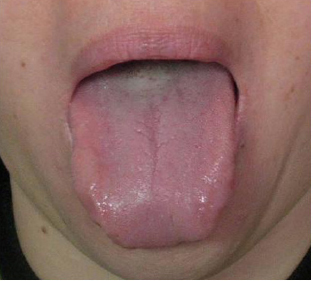
Stick-shaped tongue
This indicates that there exists excessive energy stagnation in the Three Jiao and the Back Jiao. This leads to a variety of complications which are not easily mitigated in a short period of time.
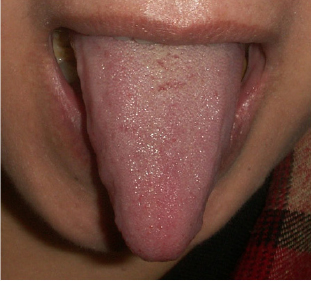
Square-shaped tongue
This indicates matter stagnation inside the cells and lack of cellular vibration.
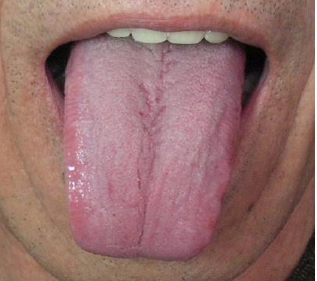
Inclined tongue
When the tongue points out to one side, it implies problems in the capillary blood circulation in the head. It may also indicate a risk of cerebral embolism or brain hemorrhage with a headache.
